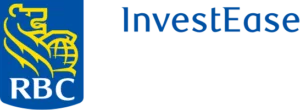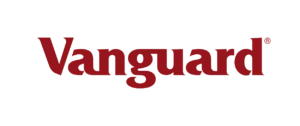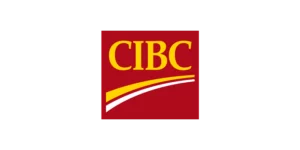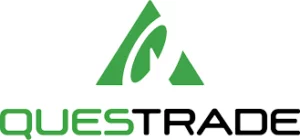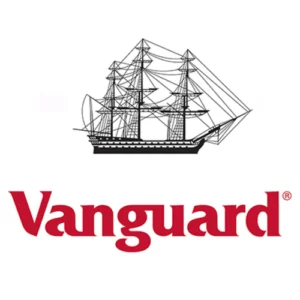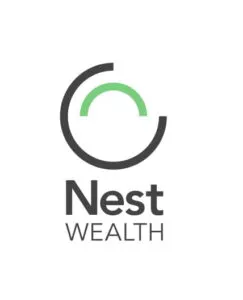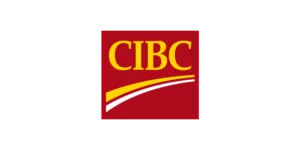
The Best Robo Advisors in Canada
If you’ve ever been curious about investments or are looking for an easy way to buy stocks in Canada, robo advisors are a great way to streamline the process. While most people think that they’re a newer way to invest, they have been in the financial scene for a decade already and are continuing to get better every year as technology and algorithms advance.
Taking all of the guesswork out of investing, robo advisors do it all for you – No prior knowledge needed. They work by asking simple questions about your finances, goals, and risk tolerances, then investing your money into a diversified portfolio of stocks and bonds. Using algorithms, it continually rebalances and optimizes your money spent, and can adjust for the best taxes as well if you’re set for that with your robo advisor.
Here are our favourite robo advisors in Canada:
CI Direct Investing (Formerly Wealthbar)
Robo advisor comparison table
How to choose a robo advisor
When you’re in the market looking for a robo advisor to handle your investments, keep these in mind before you start robo investing in Canada:
- Minimum Investment Deposit – While most robo advisors don’t require a hefty investment start-up amount, some minimums are within the thousands. If you’re just starting out to look for a robot advisor that has a zero minimum and work your way up to the automatic investment options.
- Account Types Available – Many robo advisors are branches of banks, allowing you to use your already existing accounts or creating new ones with additional benefits while investing. Retirement, savings, ETF’s, there are pros and cons for each account type. It’s best to read up on what you’re looking for and choose which works best for your goals.
- Fee Percentage – Cheaper than a human advisor, 0.5% is the standard or lower end for most robo advisors, depending on what you can receive. Some are upwards of 0.60% or more, tending to be suited for more advanced investors with a lot of money, and have a combined human + robo advisor system.
- Accessibility – While all robo advisors allow you to access your account, investments, and the like – some offer even more options and freedom with what you can access, change, and see in your account and investment portfolios, including mobile apps. Make sure that whichever robo advisor you go with, that the accessibility matches your needs.
- Human Support – It’s always nice to be able to ask an expert when you’re new to something or need advice that an algorithm can’t answer. Some but not all robo advisors include access to investment and portfolio experts that can help further your money in ways you may not have thought of when setting up your advisor.
- Know Your Goals – Last but not least, don’t forget to keep in mind what your goals are with investing and why you’re looking to use a robo advisor. Is it investing to save up for retirement? Have funds around when you need them? Savings? Curious about dipping your toes into the investment world? Find which one works best for you and your goals, even if they change over the years. A robo advisor can help you meet them.
Best robo advisors in Canada
Wealthsimple
The most well-known and trusted robo advisor on the market today available in Canada is Wealthsimple. Even if you’ve had no prior interest in investments, virtual brokers, or buying stocks in Canada – you’ve most likely heard the name.
With a $0 initial deposit needed, getting started is easier than ever. With diverse portfolio types including Halal-compliant, socially responsible, beginner-friendly, and large sums of money portfolio options, there is one for everyone regardless of your budget and social necessities. You can rest assured that your money is going to the right places while helping you grow.
All portfolio types have free auto-rebalancing on an as-needed basis, and all accounts also have access to a human advisor as well with no additional fees. There are five available portfolio types currently – Conservative, Growth, SRI, Balanced, and Halal.
Wealthsimple is an easy and affordable way to get started with investments with no account fee and no minimum investment needed. The percentages for management fees are higher than most other robo advisors, however, and if you’re making a decent amount of coin it can start to add up. That aside, it’s simple and the top-rated robo advisor to go with whether you’re just dipping your toes in or are an advanced investor.
Pros
- $0 minimum investment needed.
- Auto-deposit and auto-rebalancing.
- Diverse portfolio types.
Cons
- Limited finance tools.
- Account management fees are slightly higher.
Questrade
Questrade is another well-known virtual broker that is top-rated within Canada is Questrade. Founded in 1999 and headquartered in Toronto, it’s also Canadian-made.
With no annual fee and no inactivity fee, making Questrade a fantastic choice for beginners. The costs can add up depending on your needs and options chosen but overall, the cost is worth every penny. They make it incredibly simple to buy and sell stocks, registered accounts have US dollars, they offer an app hub and API to easily connect to third-party apps such as Wealthica, and overall have the best usable apps and website for keeping track of your money.
Paperless sign-up makes it easy to start trading within three days, and ETF’s are unlimited to buy for free as well. They support all types of accounts such as RRSPs, TFSA, Margins, RESP, etc. so that you’re never out of touch with what you’d prefer to use.
Questrade was also the first Canadian brokerage allowing holding US dollars in registered accounts, back in 2010. They’ve been around since the beginning and are worth their reputation.
Pros
- Strong web and mobile app.
- Best Brokerage awards.
- Unlimited free EFT’s purchase.
Cons
- Not the cheapest depending on your preferences.
RBC InvestEase robo advisor
If you’re an RBC customer, you can’t go wrong with looking into RBC InvestEase.
RBC InvestEase is right in between RBC’s full-service lineup for mutual funds and self-directed Direct Investing for DIY investors. It can ease your worries about safety knowing that it’s backed and accredited by a large bank, especially when you already bank with them.
InvestEase is integrated with the RBC Mobile App and RBC Online Banking, so you can see all of your accounts and investments in one place. You can instantly transfer money from your accounts to your investments in a snap.
The minimum investment is zero, though your money won’t be invested until your account reaches $100. Which is fantastic if you’re just dipping your toes in as it’s one of the cheapest minimum starts for investments across the board for robo advisors. Customer service is available for all accounts and they have accredited portfolio advisors from 8 am to 8 pm EST.
Pros
- Low fees.
- Reliability of being owned by RBC.
- Comprehensive ETF choices.
- Free withdrawals.
Cons
- Account transfers cost $125.
TD’s robo advisor
TD’s mobile-app-based robo advisor is easy and simple to use.
If you use TD’s app and trade in only TD’s ETF’s you would pay zero account fees and only pay for the MERs that in in the ETF’s themselves. You can buy and trade any stock listed on major North American stock exchanges along with TD ETF’s.
There are no commission fees for TD ETF’s, although other stocks have a $9.99 commission fee otherwise. When you make your portfolio, it comes with a guided experience helping you create your perfect investments.
You determine and choose your investment goal and risk tolerance when creating your account and using the app. Your own personalized TD One-Click ETF Portfolio, which is an all-in-one portfolio for most users. It auto-rebalances itself and stays aligned to a particular risk rating.
Pros
- No account balance minimums.
- No maintenance or inactivity fees.
Cons
- Mobile app only.
Vanguard
Vanguard was one of the first to offer low-commission trading with user-friendly investment principles and terms.
Best for anyone wanting to invest and save their money for retirement and just deal with easy-to-understand accounts and portfolios, Vanguard can’t be beat. Their specialty is retirement, highlighting age range, asset class, account type, or use calculators to choose what you like best, so if you’re looking to specifically work on that Vanguard is second to none.
Standard accounts have a $0 zero minimum deposit, $2,000 for options/margins, $3,000 for only mutual funds, and $50,000 for Personal Advisor Services. Different account types available are taxable, custodial, joint accounts, IRA, 401K, and more.
Transaction fees and other costs depend on what you’re wanting to do with your account and which mutual funds you want to work with. Portfolio’s auto-balance and you can easily access your accounts online with Vanguards simple and laid out website.
Pros
- Large mutual fund options.
- Commission-free stock.
- Low cost.
- Easy for beginners.
Cons
- Basic trading; not ideal for day traders.
Virtual Wealth
With zero minimum deposit needed, Virtual Wealth is easy and simple for every user whether you’re new or experienced with investments.
The annual payment rate is from 0.60% to 0.35% depending on your portfolio value. You can start with no minimum deposit, $0, but it will only start investing your money at $2,000. Virtual Wealth uses low-cost ETF’s and mutual funds to make up your portfolio, and while most MER’s are between 0.72% – 0.92%, Virtual Wealth has one of the lowest at around 0.15% – If you’re worried about management fees being high, Virtual Wealth might be your ticket.
Depending on your goals and risk tolerance, there are a number of diversified portfolios to choose from whether it’s aiming towards long-term growth, a safety net, or money to just be put into risky stocks to play around with, you can do so.
Usability wise they do have a mobile app alongside their easy-to-follow website, and most users have found it to be the most practical and user-friendly one compared to other robo advisors that do have mobile apps as well.
Pros
- No minimum deposit.
- Service fees are based on your personal account.
Cons
- Service fees can be pricier.
Tangerine robo advisor
Tangerine is one of Canada’s best banks, offering low fees and great customer support.
In 2008 they branched out with their first robo advisor and have been adding to it since. With Tangerine, you can be assured of the safety of your funds since they’re an accredited bank, and investing is even easier if you’re already a Tangerine customer.
Automatic rebalancing, no minimum deposit, and an automatic purchase plan available makes Tangerine one of the best robo advisors in Canada for creating passive income via stocks and trading without you having to do all of the heavy lifting and number crunching.
They have relatively low MER’s but compared to TD they are a bit higher. That said, they’re still very affordable and their global diversification along with everything being automatic (with the ability for human advice when needed at no extra cost) makes it a great choice for starters, especially if you already bank with Tangerine.
Pros
- No minimum deposit.
- Backed by Tangerine.
- Great customer support.
Cons
- Higher MER’s than TD.
- Limited options for growth.
Nestwealth
Nestwealth was one of the first robo advisors available within Canada.
You can open a variety of accounts with Nestwealth from TFSAs and RRSPs to Trust Accounts and Cash Accounts. Signing up should only take 10 minutes if you have all of your information ready and is done all online for processing. Funding your account can be done directly from your bank, a cash deposit through Bill Pay, or transferring funds through another brokerage account.
They build you a custom portfolio using 7 different ETF’s including from Vanguard and BMO, creating a personalized mix of investment/return numbers and your own personal risk tolerance.
Automatic rebalancing, investor protection, and lower fees are all good points towards Nestwealth. They also offer professional assistance at any time should you need it and they’re available via email, calling, or even text.
Nestwealth uses a subscription-based model for their fees, allowing you to pay a flat rate based on your account-size category as opposed to a percentage. Under $75,000 is $20 per month/ $240 annually, $75k-100k is $40 per month/$480 annually, and $150k and above is $80 per month/ $960 annually.
Pros
- Professional financial advice included.
- Lower fees.
- Investment protection.
Cons
- MER fees can be high for certain asset classes.
- Can be slower to transfer accounts to theirs.
BMO SmartFolio
Another great robo advisor option available through a major bank, BMO’s SmartFolio helps you invest and use your already existing BMO bank accounts to prioritize and manage all in one place.
TFSA, RRSP, RESP, Joint, RRIF, and non-registered accounts can be created and used through SmartFolio, enabling multiple options regardless of what you’re looking for. The minimum investment is $1,000, so if you’re looking for a zero-start-up account, BMO may not be the right choice for you.
The fees are higher than other robo advisors, as it is a bit of a mix. You have access to professional help and advice whenever you need it and everything is always actively managed by a team of dedicated advisors as well, on top of being backed by BMO.
The first $1,000 to $100,000 you invest has a rate of 0.70%, $150,000 is 0.60%, next $250,000 is 0.50%, while anything above $500,000 has a fee of 0.40% as the lowest. There are no withdrawal fees except for RRSP de-registration fees if you happen to do so.
Pros
- BMO customers can sync portfolios with existing BMO accounts.
- No withdrawal fees.
Cons
- Higher fees.
- No socially responsible options currently.
- No tax-loss harvesting currently.
CIBC robo advisor
CIBC’s investment packages are on the older end of the scale when it comes to how they handle their business. It is a lot more hands-on and DIY trading than other banks, especially being a Top 5 within Canada. If you’re wanting the ability to have a more hands-on approach to your investments and enjoy researching and using tools to learn, Investor’s Edge might be for you.
Their standard trading fees aren’t the lowest, but they are on par with most. There is no professional management support here, however, so CIBC’s Investor’s Edge is best suited for active traders or anyone that already knows a decent amount about trading and investing. There are discounts available as well for active traders and students.
Their website’s interface could use an update, but the functionality is good, and everything is in one place for access. There are free resources available for every type of account if you wish to learn more and do more with your investments.
Pros
- Competitive trading fees.
- Free research tools and reports.
- Student and active trader discounts.
Cons
- $100 annual account fee for accounts below $10k or $25k if you’re using an unregistered account.
- Mobile app and website feel a bit outdated.
Justwealth
Justwealth is a known robo advisor company founded in 2015, bringing Canadians closer to a just fee service while investing.
They offer an incredible array of variety for portfolio options, including comprehensive financial planning and counselling to ensure that whatever your goal is, they will help you reach it for the long term.
RRSPs, Spousal RRSPs, TFSA, RRIF, RESP, Life income funds, non-registered taxable accounts, and locked-in retirement funds are available to be created. The online portfolio manager also allows you to use US dollars, so if you have any to invest with you can do so.
The portfolios listed after you’ve filled out your initial assessment are split between four general categories – Starter portfolios, Growth, Income, and Preservation portfolios. 70 different low-cost ETF portfolios using 42 ETFs from 9 different providers allow you to have a very diversified portfolio that ensures no matter what your goal is, there will be an option that you agree with.
Pros
- Over 70 different portfolio varieties.
- USD and RESP portfolios available.
- Each account has a registered manager available for assistance.
Cons
- Minimum deposit is $5,000 except for student, recent graduate, or RESP accounts.
- $5 minimum monthly fee for accounts under $10,000
CI Direct Investing (formerly Wealthbar)
Formerly known as Wealthbar, CI Direct Investing is a wonderful choice for Canadian expats or anyone that’s looking to get into investing with robo advisors.
The slightly higher costs are worth it for many investors as the expert advice is detailed and can be worth it. From day one of setting up your account and working with them, you always have an accredited financial advisor at your fingertips ready to help with anything you need.
They offer multiple different account types from basic non-registered accounts to RESPs including Quebec, to trust funds and group TFSAs and RRSPs. CI Direct’s fees for each of these accounts start at 0.60% on your first $150,000 invested, 0.40% on $150,000-500k, and 0.35% on anything over $500k.
If you’re an expat or travel quite often, living in other countries, CI Direct is the option for you. It however isn’t available in the US or certain other countries that don’t allow it such as Iran, Egypt, etc. That said, you can open an account with CI Direct if you aren’t a Canadian citizen, as you don’t need a Canadian-based address. The minimum for this route is $25,000 to start but if you have the money it can be well worth it.
Pros
- Fantastic for Canadian expats.
- Great service and no hidden fees.
- Promos often such as $10,000 managed for free.
Cons
- Higher fees.
- High MER for private portfolios.
Frequently asked questions about robo advisors
What is a robo advisor?
Robo advisors are a class of financial advice or investment management system available online with minimal to moderate human intervention and base their digital financial advice on algorithms and mathematical rules.
How do robo advisors work?
Generally, they use the information provided by the client about their financial situation and future goals through a survey and from there uses that data to offer advice and automatically invest assets.
Are robo advisors safe?
Yes, they are safe to use, and if you’re worried or just starting into using robo advisors, some banks even currently offer their services.
The pros and cons of robo advisors?
Pros are that it makes investing and seeing how things work much easier and automatic without having to track numbers and everything yourself. Cons can be that they generally won’t under or over-perform either, as there are always chances of loss and gains.
What are the best robo advisors for beginners?
Wealthsimple, Questrade, RBC Royal bank to name a few beginner-friendly robo advisors available in Canada.
Questrade vs. Wealthsimple: Which one is the best?
It comes down to personal preference and what you consider most important. Questrade offers more access currently, and Wealthsimple clients won’t have to worry about inactivity fees or rebalancing fees. It’s best to look into both yourself and decide the pros and cons.
Financial advisor vs. robo advisor: What are the main differences?
In general, robo advisors are less expensive, but with financial advisors, you’re dealing with an actual full human that can better help and work with what you have to get to the goals you’re looking for.
What is MER?
Management Expense Ratio represents the combined total of operating fees, management fees, and taxes charged to a fund during a given year, expressed as a percentage.
Are robo advisors insured?
Typically, any money that your robo advisor puts into a cash account is covered by the FDIC, however, since you’re investing any returns aren’t guaranteed and you still may lose money.
Robo advisor vs. mutual fund: What’s the difference?
Mutual funds are generally handled by money managers that make decisions on where the money will go, and robo advisors do the same using algorithms. Mutual funds are decisions made by humans, whereas robo advisors are done by programs.
Read more

The Best Cryptocurrency Exchanges in Canada
Binance, Bitbuy, BitTrex and more: check the top crypto exchanges in Canada.
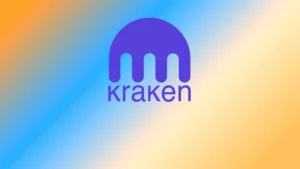
Kraken Review: Features, Trading, Pros and Cons
If you wanted to know if Kraken is the exchange for you, then check out this review.

How to Save Money: 25 Top Money Saving Tips
Learning financial literacy can be hard, but we all need to start somewhere.

Compare the Best Loans in Canada
Need a quick lumpsum or planning to do a big purchase? Find out which of these top loans suit you.


